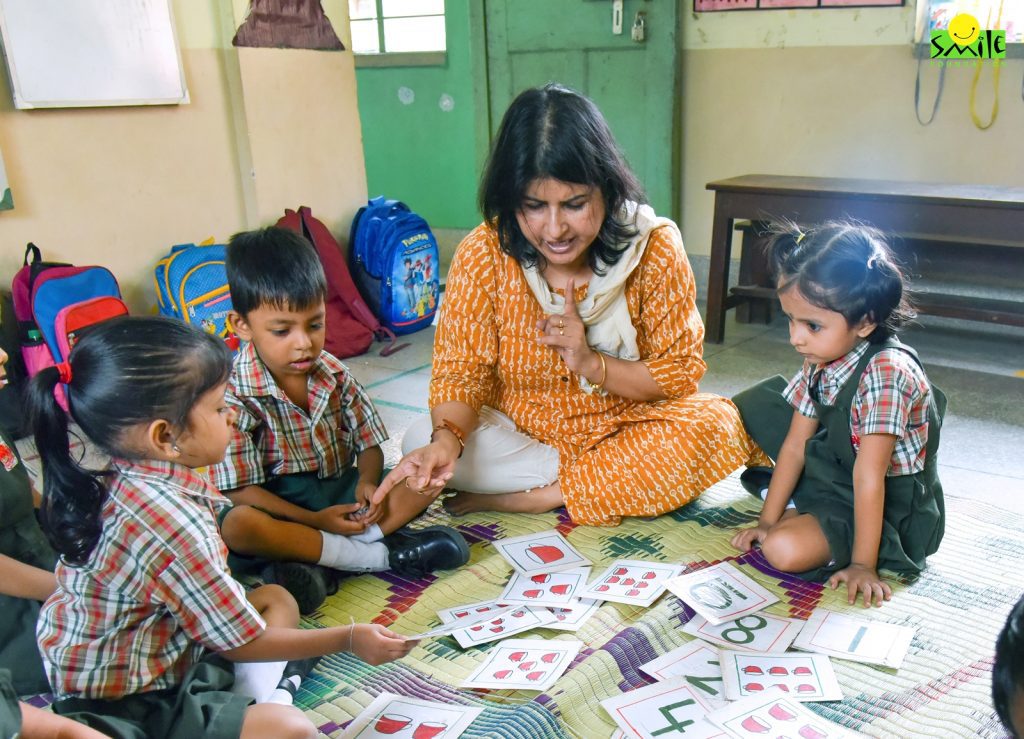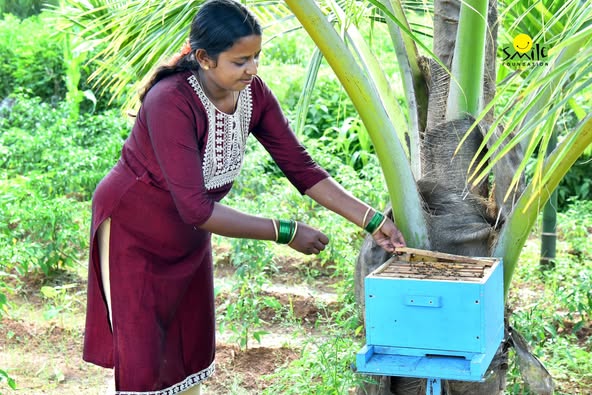Iconic American astronomer Carl Sagan was fascinated by children. In an old video, he talked about children’s curiosity and how they naturally asked deep questions and saw the world from a unique, imaginative lens.
Sagan also spoke about how society and the laid-out ladder for everyone sucked the life out of children, destroying their ability to think freely. Emphasis on the right education and care can prevent such creative destruction and help children choose what interests them.
As children represent the future of a nation, early childhood care and education (ECCE) is also pivotal for the economy. Fortunately, India has recognised the significance of investing in early childhood development in recent years. The remarkable results emphasise the value of early care and education for children.
Understanding Early Childhood Care and Education (ECCE)
Early childhood care and education is an approach focused on care, health, and education for children aged 0-8 years. It includes quality preschool education, health and nutrition interventions, and support for parents and guardians. The objective is to ensure holistic development during the critical early years, which are formative in shaping a child’s cognitive, physical, social, and emotional abilities.
Investing in Childhood Development
Part of the West’s success in the last few decades can be attributed to its focus on child development and education. The curriculum followed by Western schools and universities is far different from countries like India, where educational institutions steer children toward a specific subject.
Thankfully, India has arrested the problem and recognised the importance of investing in early childhood development education, understanding that these formative years lay the foundation for a child’s future success. By providing quality ECCE programs, the country is fostering an environment that nurtures young minds, allowing them to reach their full potential.
The government, non-governmental organisations (NGOs), and various stakeholders have joined hands to create an inclusive and supportive ECCE ecosystem across the nation.
The NEP (National Education Policy) 2020, NIPUN (National Initiative for Proficiency in Reading with Understanding and Numeracy), and NCF (National Curriculum Framework) represent a few transformational changes from the Indian government.
These initiates highlight the importance of transforming Angwanwadi centres into ‘learning centres’. Anganwadi centres and workers can harness the power of activity-based learning and develop cognitive skills and socio-emotional development in children during their formative years.
Additionally, the government has recognised that nutrition and early childhood education outcomes are equally important. The Ministry of Women and Child Development’s ‘Poshan bhi, Padhai bhi’ initiative is a move in this direction, although the investment amount must increase for better results.
Going by numbers, the average Anganwadi centre spends ₹2,000 per child compared to around ₹20,000 spent on a child in a government primary school.
Successful ECCE Programs in India
While there’s clearly scope for improvement in a few flagship early childhood development education initiatives, the government can draw inspiration from a few successful programs. India has witnessed the successful implementation of various ECCE programs across the country, including the Integrated Child Development Services (ICDS) in Maharashtra.
It provides a package of essential services like nutrition, healthcare, immunisation, and early learning opportunities, to children under the age of six.
NGOs have also played a crucial role in augmenting ECCE efforts. Many organisations have established model ECCE centres, which reach out to underprivileged children and communities with innovative approaches and inclusive practices.
Studying the success of these models can help the government and private companies gain learnings to implement in their initiatives. No two programs can yield the same results, but stakeholders can draw parallels and tweak them to fit the objectives of each program.
Key Benefits of Early Childhood Care and Education
Early childhood care and education hold value for children as well as the economy. Listed below are a few reasons why:
1. Enhanced cognitive development
The brain develops rapidly during the early years, and ECCE interventions support cognitive development, language skills, and school readiness. Quality early learning experiences lay a strong foundation for future academic achievements.
2. Improved social and emotional skills
ECCE programs promote positive social interactions, emotional well-being, and empathy. Children learn valuable social skills, such as sharing, teamwork, and conflict resolution, which contribute to their overall emotional intelligence.
3. Health and nutrition
Early childhood is a critical period for physical growth and brain development. ECCE initiatives prioritise access to proper food nutrition, immunisations, and healthcare, leading to improved overall health and reduced long-term health risks.
4. Long-term educational attainment
Children participating in high-quality ECCE programs are likelier to enrol in and complete formal education. This increased educational attainment sets the stage for higher employment opportunities and overall socio-economic development.
5. Reduction in inequalities
ECCE initiatives aim to bridge gaps in access to education and reduce disparities among children from different socio-economic backgrounds. By focusing on inclusivity, India is working towards a more equitable society.
Closing Thoughts
India’s focus on early childhood care and education is yielding significant returns in terms of childhood development and long-term societal benefits. By investing in ECCE programs, the country is nurturing the potential of its youngest citizens and equipping them with essential skills and capabilities. The positive impact of ECCE can be witnessed in enhanced cognitive development, improved social and emotional skills, increased educational attainment, and reduced inequalities.
However, there’s still a long way to go to completely realise the potential of ECCE. Continuous effort and individuals hold the key, while various stakeholders must draw inferences from successful models already in place.
Smile Foundation realising the importance of early interventions in the lives of marginalised children invests its all in the quality education of young children through its flagship program, Mission Education (ME). You too can make a difference in their lives by donating an amount that doesn’t affect your own quality of life and is also able to provide a decent life to those who need it the most.









